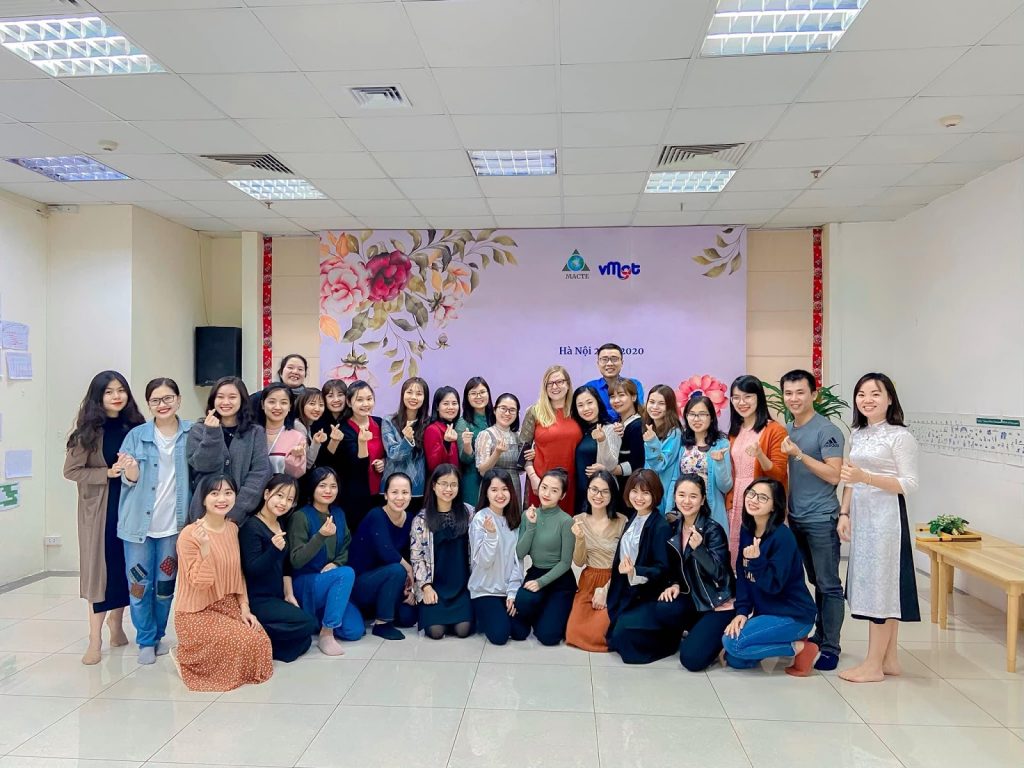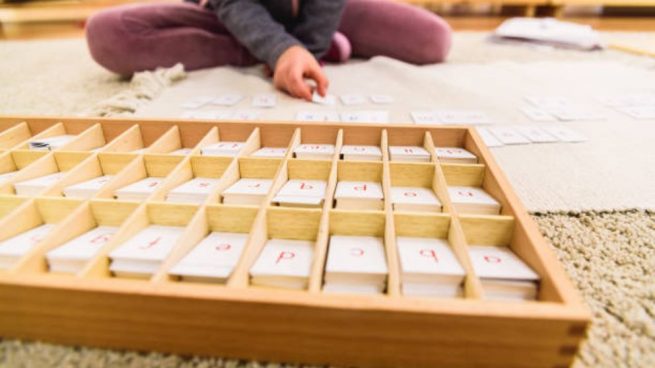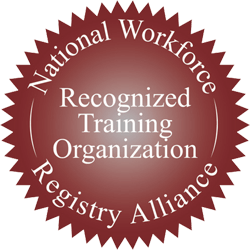Help! This fall I’ll be stepping into a Montessori school as their new administrator. This school has struggled somewhat with turnover of both teachers and administrators over the years. What tips or resources would you recommend for this period of transition, and getting the school back on the right foot?
What an exciting time for you and an excellent question. Change is often not easy, but it is constant, and always offers opportunity. Whether you are an experienced administrator or this is your first role in administration, many recommendations parallel either scenario and are not dependent on school size or levels taught. Maria Montessori’s work and philosophy are incredibly relevant to schools as a whole as well as adults. Her genius is scalable and transferable.
Administrator and guide, or teacher, turnover is an excessively tricky problem but is one that dramatically affects a school’s operation and life. The Economic Policy Institute estimates that 14% of teachers leave the profession yearly, and there was a vacancy rate of 110,000 teacher/guide positions nationally (based on the 2018-19 school year). While those statistics include all types and pedagogies of schools, it is essential to note that Montessori schools are not exempted from turnover. Because our communities are family-centered, we assume that our sphere of existence is somehow different. It isn’t. You are not alone, and this is not new. In 2001 a study from the National Center for Education Statistics Schools and Staffing Survey placed national teacher turnover at, interestingly, 14%. Sadly, it has mainly remained the same for almost 20 years.
Turnover has many costs, both monetary and non-monetary, including disruption of the learning environment for students, disruption in the community, and loss of student and organizational knowledge as well as the time and effort in training. Guide and staff turnover is complex and can be caused by reasons including pay, benefits, working environment, lack of support from administrators, parents or colleagues, lack of training, or numerous other issues. As you know, the role of a Montessori guide or administrator is not simple. Guides are expected to direct our students academically while allowing them to explore independently and meet each of their students’ individual needs. They ensure that their parents are updated and vested in their child’s work, track student progress, and lastly, do so while modeling a calm, collected, and comforting presence. There are many direct and indirect pressures on Montessori staff.
With such a complex issue, the first step towards a solution should be to observe. Just as in the classroom, observation of the school system will give you insights into many facets that may not be readily apparent. You are entering an institution with many levels to its operation and existence, regardless of the number of students the school serves. While I am sure that you have thoughts as to why the school has turnover, clear-minded, unbiased observation will allow you to confirm or deny what is happening.
Just as each Montessori guide and classroom has its own personality, schools as a whole do as well. To be successful, you must understand the whole system the best you can before implementing anything. This isn’t very easy for most school administrators and humans in general. We are programmed to “fix” things, and as Montessorians we want to help lessen angst and make the world a better place. But if we react to the wrong pressure, we might make the situation worse.
While the observation of a school is very similar to classroom observation, there are additional points that you have access to. Do not restrict yourself to observing just the classrooms or reading the school’s current policies and procedures. Try and observe and immerse yourself into everything: carpool line, parent interactions, teacher interactions, research the school’s history, review their historical budgets, and read as many of the school’s original policies as possible. Why did they change what they did? What have they left original? Who have been the driving forces?
All of these points will tell you something that may be important. To use policies, procedures, and protocols as an example, you might find that the governing board or past administrator recently changed its training, benefits, or pay scales. The school may have increased its student numbers or even added new technology the guides were not accustomed to.
It is important to note that as this is a transition for you, it is also a transition for the students, parents, guides, board members, or authorizers. Because there are so many moving parts and stakeholders in a school, your initial observations will start to guide you to a solution. At first glance, you might think that the turnover was due to the previous administrator, but upon consideration, you may find that the former staff were not in alignment with the school’s policies, or even the school’s vision.
Observation of the system will allow you to navigate through your new environment much more comfortably. It will give insight into office politics, board dynamics, learn who the school’s primary stakeholders are (sometimes not always the people you think they are), and understand the school’s culture. I have found that if you truly take time to listen to community members, they will give you all the information that you need.
As part of the observation process you want to receive information and can be done both through direct observations and observation of data trends. Indirect data trends can be collected through parent, staff, and student surveys. While we encourage our students to engage in open discussions and conflict management actively, parents or staff may not feel comfortable in speaking so openly. While they might not want to seek you out, hearing their views is still very important. Having an anonymous way to collect insights about the community is essential and can be done at almost no cost through one of the online survey companies.
A couple of other tips that will assist you in your new role:
- Get to know your new community and engage them early on. Have open office hours, schedule community meetings, join the staff in their level, and committee meetings to see how they interact with their constituents. Not all parents can meet during the day, so be sure to have some meetings at night around their hours.
- Be positive about the transition and avoid comparing the new to the old. You never know who is connected to who and what their role was in creating the school’s culture.
- Model the behaviors you expect and make sure that your expectations are clear. This is truly one of the most difficult points. Even though everything may feel like it is a crisis or emergency, remaining serene. Addressing issues in a calm, cool, collective manner will assist in defusing almost all tense situations.
- Be authentic. Do not try and “win” people over and always be yourself. While it might work in the short term, over time, special deals do not help you if you are trying to develop a sustainable, consistent staff and school. While people may disagree with your choices as a leader, if you are honest about your rationale and reasoning, they will most likely respect your decisions.
- Get outside assistance. Whether in the form of a consultant, additional training, a cohort of colleagues, or a mentor it is always beneficial to get other peoples opinions based on their experiences.
Lastly, while we all respect our guides and staff, and this can be uncomfortable, turnover might be a symptom of disagreement with the school’s interpretation of the Montessori philosophy, its long term plan, or its embedded culture. There are some things that you cannot change. A school’s internal culture and mission may not be a fit for all staff members. If you find this is the case, you need to ensure that it is known that the school’s mission and culture are not negotiable. Ultimately, as an administrator, that is your most significant responsibility: to protect your school’s culture, vision and to ensure its long term operation.
Austin Smigel is the Co-head of School/Director of Administration and Finance for Washington Montessori Public Charter School, the Managing Director of iFoundation, an education consultancy, and serves on the Board of Southeast Montessori Collective. He holds an MBA from Marymount University with a focus on Strategic Management and Finance as well as Secondary I- II Credential from The Center for Guided Montessori Studies (CGMS). He is also an instructor of Charter School Finance and Strategic Finance for the new CGMS School Leadership Credential Program.
With over 20 years of experience in small businesses and school development and management, Austin’s focus is on sustainable organization operation. In the classroom, he teaches entrepreneurialism, economics, principles of business, and practical life to adolescents. In addition to his classroom work and administrative responsibilities, he is a champion of student-run business. Mr. Smigel has presented at numerous conferences for strategic management, school data analysis, as well as how to assist students, and guides, create sustainable businesses.
Austin lives in Washington, NC with his wife Amy, a Montessori guide, and children who both attended Montessori schools (one recently graduated from a Montessori high school), three rescue dogs, two rescue cats and last, but not least one blind rescue bunny.
Are you a school leader interested in more resources and support? Check out the new CGMS School Leadership Program. We are now enrolling our first cohort! https://www.cgms.edu/programs/leadership-training-program/






